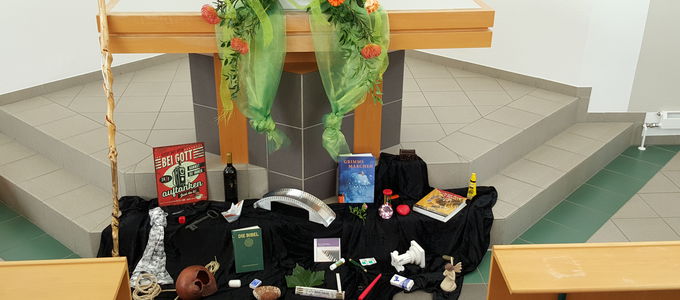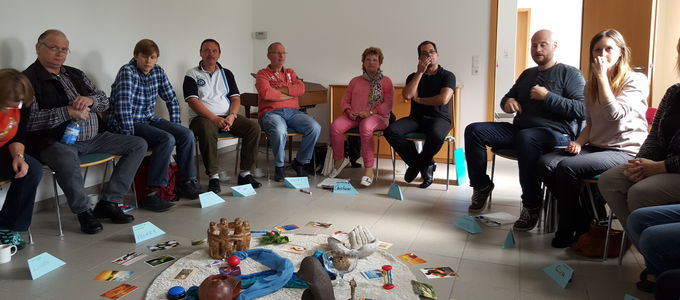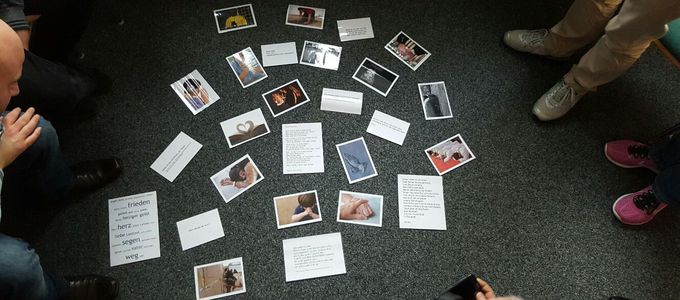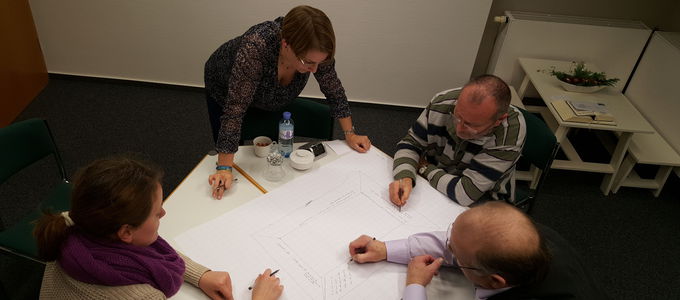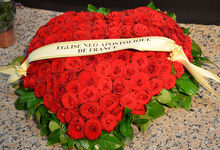Grief counselling: a demanding task
In principle, anyone can help a person who is coping with grief: the important thing is to be there, listen, and empathize. But there are also specially mandated grief counsellors with appropriate training for this task. In the District Churches of Germany there are now corresponding certification courses.
Suddenly everything has changed! From this very moment on, the life to which one was accustomed is completely different. A loved one has died. Those who have remained behind must now find their way through a completely different reality of life and give their previous life a new and unintended direction.
Such is the reality. So what is to be done?
In such situations of life, grief counselling can help make the transition between taking leave, moving on, and making a new start. Already since the time of Sigmund Freud, grief counselling has been a serious discipline within the domain of psychological care. Reconciling oneself with the loss is an important element of life for the person affected. Although grief counselling cannot take away the grief itself, it is intended to support the bereaved in affirming life. This occurs over several phases, and is a very demanding task. Many institutions, among them also the churches, have since recognized this need and have begun training volunteer grief counsellors.
Sixteen participants from the New Apostolic District Churches of Hesse and North Rhine-Westphalia gathered together once each month for a year in Baunatal. Seminar leader Jürgen Jakob, a trained emergency chaplain and Priest from Pohlheim near Gießen, had prepared a strict programme for them, which incorporated the topics of dealing with grief in society, ways of mourning, grieving rituals, basic principles of grieving, and helping children and young people cope with grief. These elements of training are in line with the curriculum of the German Federation of Grief Counsellors. At the close of the course, each of the participants wrote a final dissertation in which they had to apply the contents they had learned by way of a case study.
Between two worlds
Memory and reality: the bereaved often find themselves torn between two worlds. Although there is no uniform pattern of grieving, it is quite common for many different feelings to arise, including shock, bewilderment, anger, guilt, depression, loneliness, fear, and panic—often all at once. Some feel confused, abandoned, and disappointed. Others are petrified, as though paralysed. Anguish and pain define the day.
It is at such moments that the grieving process begins. It happens alone for the most part. However, there are also individual companions or self-help groups, friends, and ministers—people who are there for the bereaved, who show commitment, who give support. Grief counsellors have learned to listen. They are silent and weep together with the bereaved. They talk and remind one another. It is a comforting thought that a bond of love cannot be broken by death. Supportive grief counselling is like a common “search for clues”—biographical memory work. Slowly a bridge comes into being between this world and the next.
Certificates awarded
In Baunatal Bishop Gerd Kisselbach from Kassel and seminar leader Jürgen Jakob presented the participants with their training certificates. The certificate makes them voluntary grief counsellors. The Bishop paid tribute to their training and sent them off to do their demanding work with a prayer.
There are also similar programmes in the other districts in Germany. Concerning this, Jürgen Jakob explains, “A separate training course has been in progress in the District Church of North Rhine-Westphalia as of January 2016. And there is also another group of trainees who are set to take care of Saarland and Luxembourg, who will resume their training in Trier after the summer holidays.” At present, work is also being done on a conceptual model for emergency pastoral care, according to Jakob.
Article info
Author:
Date:
Keywords:
Peter Johanning
26.07.2016
Germany,
Auxiliary institutions,
Congregational life



